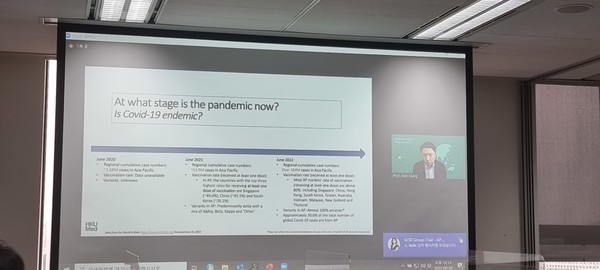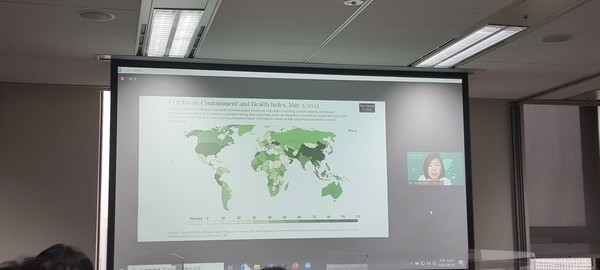Various experts in the Asia-Pacific region are now stressing the need to focus on routine care as the Covid-19 pandemic enters an endemic phase.

"A return to routine care is urgently needed to prevent non-Covid-19-related deaths," Professor Ivan Hung, chief of the Infectious Disease Division at the University of Hong Kong, said at a journalism program organized by MSD on Thursday. "Much of the current care, including manpower and daily hospital services, has been shifted to the Covid-19 control.
There are new technologies, including telemedicine, allowing doctors to treat patients outside of the hospital. However, he added that now is the time for the medical community to shift back to providing routine care as the world enters an endemic phase and Covid-19 is becoming less severe.
Hung stressed that hospitals need to optimize treatments for other diseases, including cancer treatment and chronic illnesses, which have been neglected because of Covid-19.
Hung added that countries need to address the disruption in the immunization program.
"The number of other vaccinations, aside from Covid-19, is declining," Hung said. "According to the WHO data, at least about 80 million children are at risk of diphtheria, measles, and polio as they have not received vaccines."
However, before returning to routine care and restarting the immunization program, it is also essential to truly enter an endemic phase, Hung noted.
"The criteria for the world to transition from a pandemic to an endemic are the widespread infection and mild symptoms, infections and high vaccination rates to achieve superior natural immunity, effective antiviral treatment, and the launch of the second-generation Omicron vaccine currently in clinical trials," Hung said.

Professor Anna Lisa T. Ong-Lim of the Department of Pediatrics at Philippine General Hospital agreed.
"Mobility restrictions have become the primary means of curbing Covid-19 transmission," Ong-Lim said. "However, these restrictions have limited patients' access to face-to-face medical services."
Ong-Lim pointed to telemedicine as a solution for limited medical access for patients.
"For a long time, we have had this mindset that healthcare needs to be accessed in a facility," Ong-Lim said. "However, when we think about it, such facility-based service was a replacement for an older paradigm in the earlier parts of the century where medical care was delivered directly to the households."
With the Covid-19 pandemic, telemedicine has become the norm as it was the only way for healthcare to be delivered in some conditions. She added that it had opened the way for the broader adoption of such a method.
Ong-Lim stressed that countries now face a challenge in identifying components critical to the successful adoption of telemedicine.
"We need to be able to support telemedicine because we foresee that the pandemic has changed how things work," she said. "Even as we move back to our old standards, we need to retain the advantages of telemedicine so that we can incorporate it into previous paradigms and build a better healthcare system."

